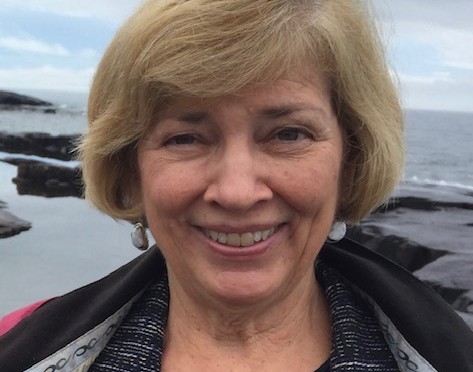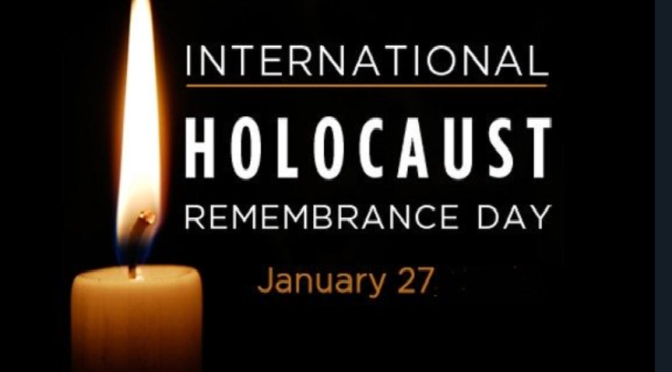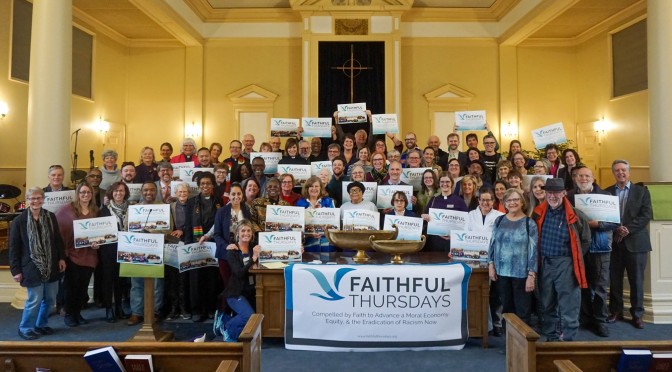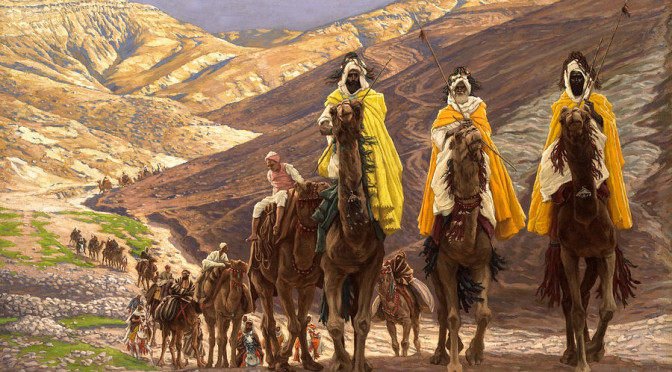Caitlin Trussell with Augustana Lutheran Church, Denver, on January 31, 2020
[Sermon begins after two Bible readings]
Isaiah 25:7-9 And [the Lord of hosts] will destroy on this mountain
the shroud that is cast over all peoples,
the sheet that is spread over all nations;
8 he will swallow up death for ever.
Then the Lord God will wipe away the tears from all faces,
and the disgrace of his people he will take away from all the earth,
for the Lord has spoken.
9 It will be said on that day,
Lo, this is our God; we have waited for him, so that he might save us.
This is the Lord for whom we have waited;
let us be glad and rejoice in his salvation.
John 14:1-7 [Jesus said] ‘Do not let your hearts be troubled. Believe* in God, believe also in me. 2In my Father’s house there are many dwelling-places. If it were not so, would I have told you that I go to prepare a place for you?* 3And if I go and prepare a place for you, I will come again and will take you to myself, so that where I am, there you may be also. 4And you know the way to the place where I am going.’* 5Thomas said to him, ‘Lord, we do not know where you are going. How can we know the way?’ 6Jesus said to him, ‘I am the way, and the truth, and the life. No one comes to the Father except through me. 7If you know me, you will know* my Father also. From now on you do know him and have seen him.’
[sermon begins]
Cindy’s warmth and encouragement seemed in endless supply through the years and across her relationships. Especially as a mother, she had a knack for knowing just how to encourage Katie and Anton in many situations. Her support carried all kinds of people through difficult times. This was true from her closest relationships to people she didn’t even know. When I walked into her hospital room on the Sunday afternoon she died, stories were already being told about her way of getting into the mix of people needing help. If fact, the family’s invitation to give in honor of Cindy to Metro Caring, a frontline anti-hunger organization in Denver, aligns with how she moved through the world. Curt puts it this way, “Cindy had unconditional love; she didn’t judge, she served.” Such love and support come from not only strength but also from the clarity of one’s own imperfection. You see, clarity about one’s own imperfection frees grace for someone else’s imperfection. Out of that clarity of faith comes an awareness of just how much God must love us.
Because Cindy’s death was unexpected, the stories about her that reflect who you each knew her to be are so important. Not to idealize perfection but rather to continue loving her in the fullness of herself – loving her in the way she loved others. When I pray out loud with people, I often say a prayer of thanksgiving for the way God shows God’s love for us through other people. Cindy was one such person through whom a small fraction of the love that God has for us was experienced. In that spirit, remember to offer grace to yourselves and each other in the coming days and weeks as the experience of her loss shifts in and out of focus.
In the Bible story from John 14, Jesus says, “Do not let your hearts be troubled.” Jesus often said things like this when he knew that the people around him were definitely troubled. He acknowledges the truth of the troubled moment. I don’t know how easy it was for Jesus to offer encouragement to un-trouble ourselves. I do know that it’s easy for us to get lost in the details of Jesus’ words just like Thomas. Jesus promises to prepare a place and Thomas unravels. In effect he asks, “Way? What way? Where? How will we know?” It is tempting to think that we have to know and prove the way, be able to explain the way and point ourselves in the right direction on the right way. There’s an additional temptation at funerals to try to look back and prove our worthiness before God. To think that we have to prove our own goodness or the worthiness of the person who died, positioning them in right relationship with God with a list of the good. In effect, we try to create the way – as if the life and virtues of a person can be mixed into cement of sorts, paving the way between us and God.
But if Jesus’ death on a cross means anything, it means that God is neither in the sin accounting business nor the proof of worthiness business. Earlier in the Gospel, in John 3:17, we hear the promise that God did NOT send Jesus into the world to condemn the world but to save it. Another way to say it is that it’s not about what we’re doing, or what Cindy did, it is all about what Jesus does for us. Because what Jesus does, is promise that there is nothing Cindy could do or not do to make God love Cindy any more or any less.
Listen again to Jesus’ promise to Thomas in his distress, Jesus’ promise to those of us who grieve. Listen to how many things Jesus is doing, “In my Father’s house there are many dwelling places. If it were not so, would I have told you that I go to prepare a place for you? And if I go and prepare a place for you, I will come again and will take you to myself, so that where I am, there you may be also.” Jesus makes a promise and Thomas immediately panics. “Ahhh, what about WHAT I’M supposed to be doing?!” Jesus replies, “I am the way” – which can be heard as Jesus saying to us, “It is not about you doing anything, it is all about what I do for you.” It’s like Jesus reminding us that, “There is nothing you can do or not do to make God love you any more or any less.”
The Gospel of John emphasizes the power of God in Jesus. Jesus, who is God. God, who is Jesus. Jesus who came not to condemn the world but to save the world that God so loves. Jesus whose ministry of God’s unconditional love led to his execution on a cross. Jesus’ death on the cross means a lot of things. One thing the cross means is that God knows suffering. More than that, the cross reveals the mystery of God suffering with us when we suffer which means that the cross meets our grief with hope – allowing space at the foot of the cross for sadness and loss while also celebrating the goodness of life in the person who died.
Christians will sometimes refer to living on “this side of the cross.” The resurrection-side of the cross is simply too much to fathom in a world in which we can clearly see real problems. In this way, the truth of the cross is closer to home than the resurrection. It’s a truth we get deep in our gut. The truth that being human involves real suffering and pain. The truth that God would rather die than raise a hand in violence against the world that God so loves. The truth of God’s self-sacrificing love. The truth that forgiveness comes from the cross as Jesus says, “Father, forgive them, for they know not what they do.” The truth about the unflinching love of God in the face of our failures. Those are hard truths, but we can get at them from our own experiences of love, forgiveness, self-sacrifice, pain, suffering, and death. We can get at them from this side of the cross.
The resurrection side of the cross, the empty tomb of Easter, means that we are not left forever in the shadow of the cross. The empty tomb reminds us that there will come a day when God, as Isaiah writes, “will swallow up death forever…and will wipe away the tears from all faces.” The empty tomb reminds us that Jesus laid his life down in self-sacrificing love, and now catches death up into God, drawing Cindy into holy rest with the company of all the saints in light perpetual. Here, now, we are assured that this is God’s promise for Cindy. And be assured, that this is God’s promise for you. Thanks be to God! And amen.




